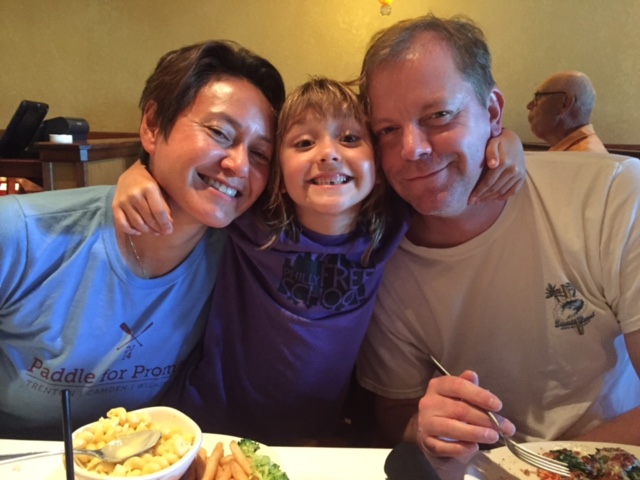
Naia enrolled at PFS in January of 2014, when she was 4 years old, but her parents had been involved long before. In 2008, Eric, her father, joined the Founders group and helped get the school off the ground by soliciting the pro-bono services of his law firm to help craft the school’s bylaws. Nonetheless, Eric had the same worries about enrollment that many parents have: “I was both excited and also nervous about enrolling Naia in a school where her education would be driven entirely by her own interests and initiative.” Naia’s mom, Jill, agreed that the decision was a weighty one: “It seemed to me at the time the most radical and exciting model of education around. We thought that it was worth at least giving PFS a try. Now we can't imagine her being anywhere else.”
Eric and Jill have noticed that Naia navigates complex social interactions more easily since joining the PFS community. “As an only child, these are among the most critical skills she gets from PFS, and we are happy to see them develop. We think the school’s age mixing has helped her to be able to interact with both older and younger children, and be both a leader and a follower,” says Eric. Growth is not always easy to assess, however, and the lack of school evaluations can be difficult. In Jill’s words, “Being a PFS parent is an education in and of itself: you are always challenged to understand what it really means to give your child sovereignty.” At the same time, both parents and students at PFS begin to develop their own measures for success. Jill says, “They may not have perfect penmanship by age 7 or have begun long division at 8, but then you see them learn the skills that they need when they are ready, and you begin to trust your child in ways that you may not have otherwise.”

As for Naia, she enjoys designing Minecraft worlds, playing gaga (a dodgeball-like game), watching the Judicial Committee in action, and listening to music in the music room. In reflecting on what she has learned, her answers range from the academic to the social / emotional: “I learned to read while I was here. I’ve learned that friends can sometimes go through phases and it can be hard for you, but they are still your friends.” Naia has also developed a keen sense of empathy. “I’ve learned that some people can be uncomfortable when they are first here, but you can help them get comfortable. I helped someone become more comfortable, and then we became BFFs.”
Naia’s family embraces the challenges of a PFS education. Eric’s suggestion to families considering enrollment is to take your time and read up on the model, with “fresh eyes.” Do not let naysayers deter you: “Understand that not everyone will understand this approach and some will think you have abandoned your child’s future – you have not. Talk with your child and see what they think and why.” When asked how she would advise someone considering PFS, Jill says, “I would say expect it to be the most challenging and also the most rewarding experience regarding your child's education that you will make.”
